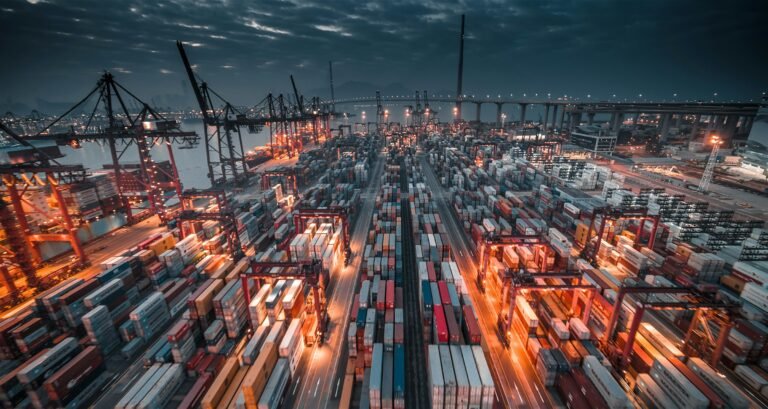In a dramatic shift in policy, US President Donald Trump has announced a 90-day pause on higher tariffs, while further escalating the trade war with China.
Just hours after stiff ‘reciprocal’ levies against many of the US’ biggest trading partners, including Japan, Vietnam and the European Union kicked in yesterday (9 April 2025), Trump confirmed he had authorised a universal “lowered reciprocal tariff of 10 per cent” amid ongoing negotiations with countries worldwide.
However, Trump has further increased the tariffs on items imported from China to an eye-watering 125 per cent, after Beijing said it would introduce tariffs of 84 per cent on US imports.
The shift comes a week after Trump announced levies on all goods entering the US, causing global market turmoil and prompting fears of a recession.
The ‘baseline’ tariff of 10 per cent remains in effect, but higher tariffs against other trading partners – referred to as ‘reciprocal tariffs’ – are paused for 90 days while the White House enters negotiations with all countries willing to come to the table.
After Trump confirmed the plan on his platform Truth Social, US shares took a boost, with the S&P 500 soaring 7 per cent during afternoon trading on Wednesday (9 April 2025).
As marine firms battle to weather the storm, the fallout is already being felt. In the UK, Rob Kemp, from Kemp Sails, says he’s had multiple calls from customers looking to ascertain where the material being used for their sails is from. Several have asked not to have material from the USA used for their projects.
“It’s quite polarised,” Kemp tells MIN. “People don’t care, or they really care. No one sits on the fence. It’s something we’ve focused on a lot as we’re proud to make in the UK. But there are limited places that you can get the materials.”
Within hours of the US administration imposing 25 per cent tariffs on steel and aluminum imports in March, the EU had confirmed plans to impose its own duties on €26bn ($28.3bn) worth of American goods, including boats.
The implementation is currently paused until 15 April as further discussion takes place between the United States and the European Union.
According to EBI’s information, published yesterday (9 April 2025), recreational boats and certain equipment (sails, life jackets and life vests) are set to be included with tariffs of 10-25 per cent in the EU’s duties. This may, however, still change.
Ursula von der Leyen, president of the European Commission, is not pulling any punches.
“The cost of doing business with the United States will drastically increase,” she says. “And what is more, there seems to be no order in the disorder. No clear path through the complexity and chaos that is being created as all US trading partners are hit.”
She continues: “Let’s be clear-eyed about the immense consequences. The global economy will massively suffer. Uncertainty will spiral and trigger the rise of further protectionism. The consequences will be dire for millions of people around the globe. . . The tariffs will also hurt consumers around the world. It will be felt immediately. . . Inflation will go up. . . All businesses – big and small – will suffer from day one. From greater uncertainty to the disruption of supply chains to burdensome bureaucracy.”
Not all boat makers feel negative about the news, however. Twin Vee PowerCats CEO and president Joseph Visconti tells MIN he is welcoming the trade tariffs, whichever form they end up taking.
In a recent interview, Visconti said he believes trade tariffs are an incredibly positive and necessary tool for strengthening American manufacturing and securing the long-term economic health of the United States of America. While some short-term adjustments may be required, he argues, the long-term benefits far outweigh the temporary challenges.
In a statement, NMMA says it has ‘consistently urged the administration to take a targeted, nuanced approach to trade enforcement – one that strengthens America’s position globally while avoiding harm to domestic producers.’
It adds: ‘The recreational boating industry is a proudly made in America industry that supports more than 812,000 American jobs and generates $230bn in annual economic impact.’

